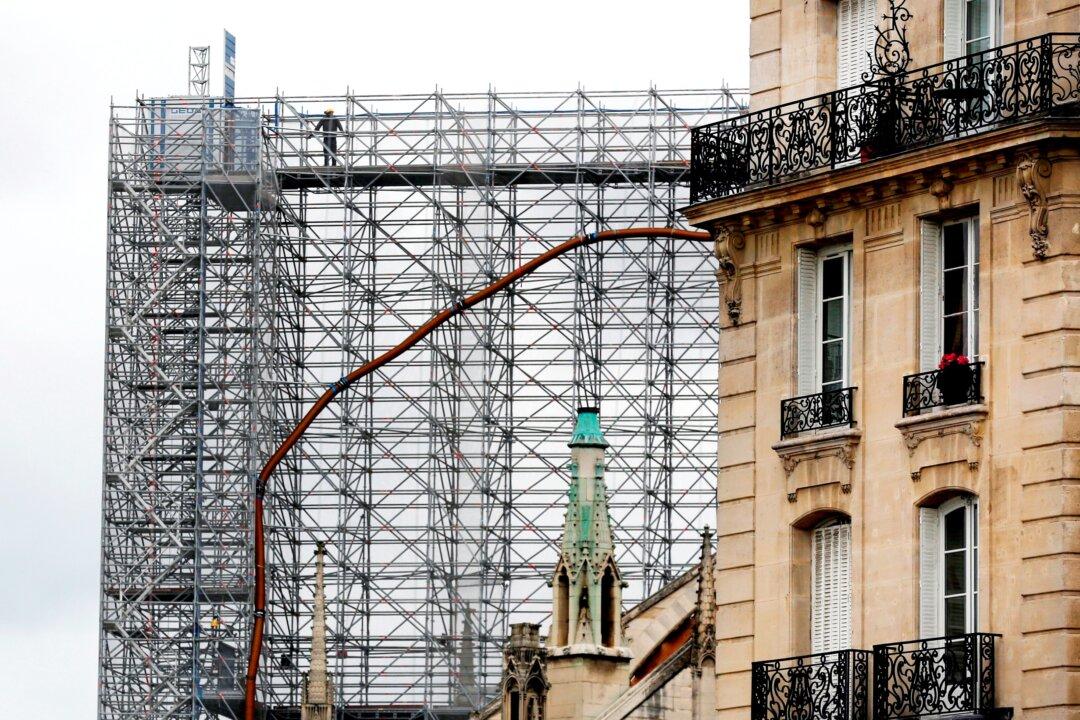PARIS—Notre Dame Cathedral will be rebuilt just the way it stood before last year’s devastating fire.
No swimming pool or organic garden on the roof of the medieval Paris monument, or contemporary glass spire, or other modern twists. And to stay historically accurate, it will again be built with potentially toxic lead.






